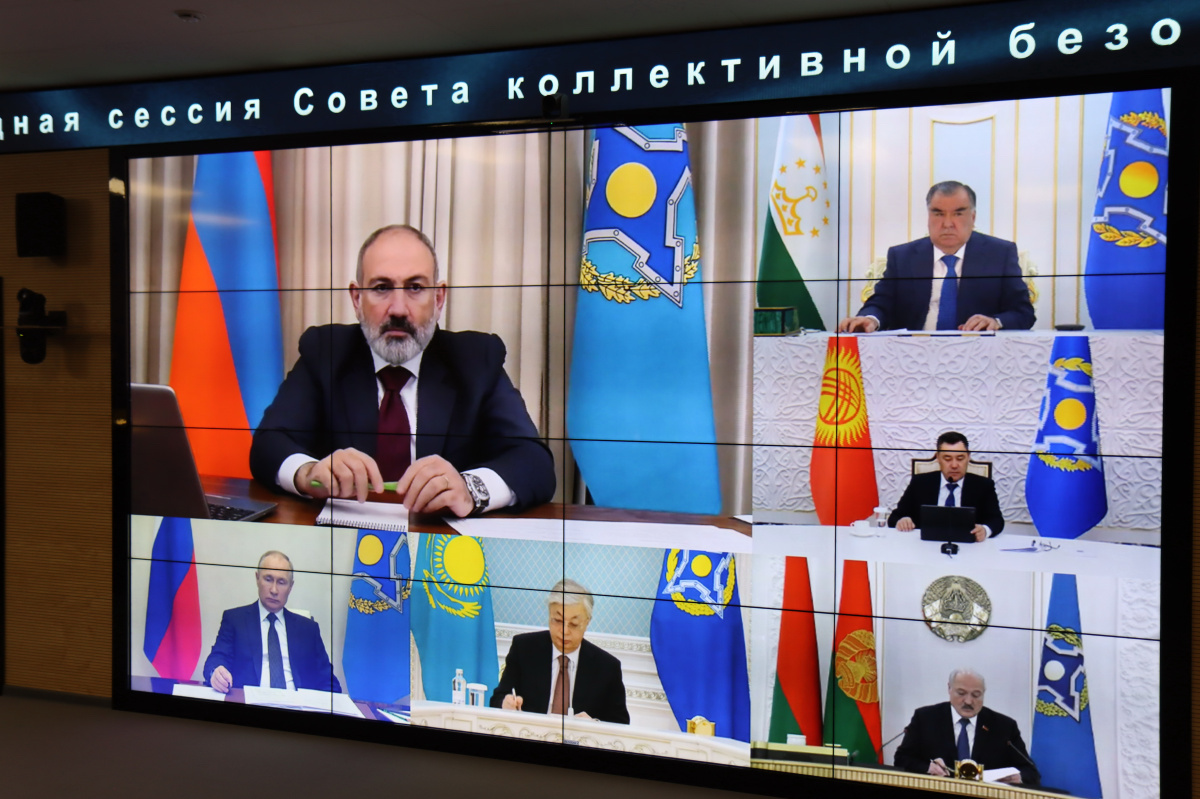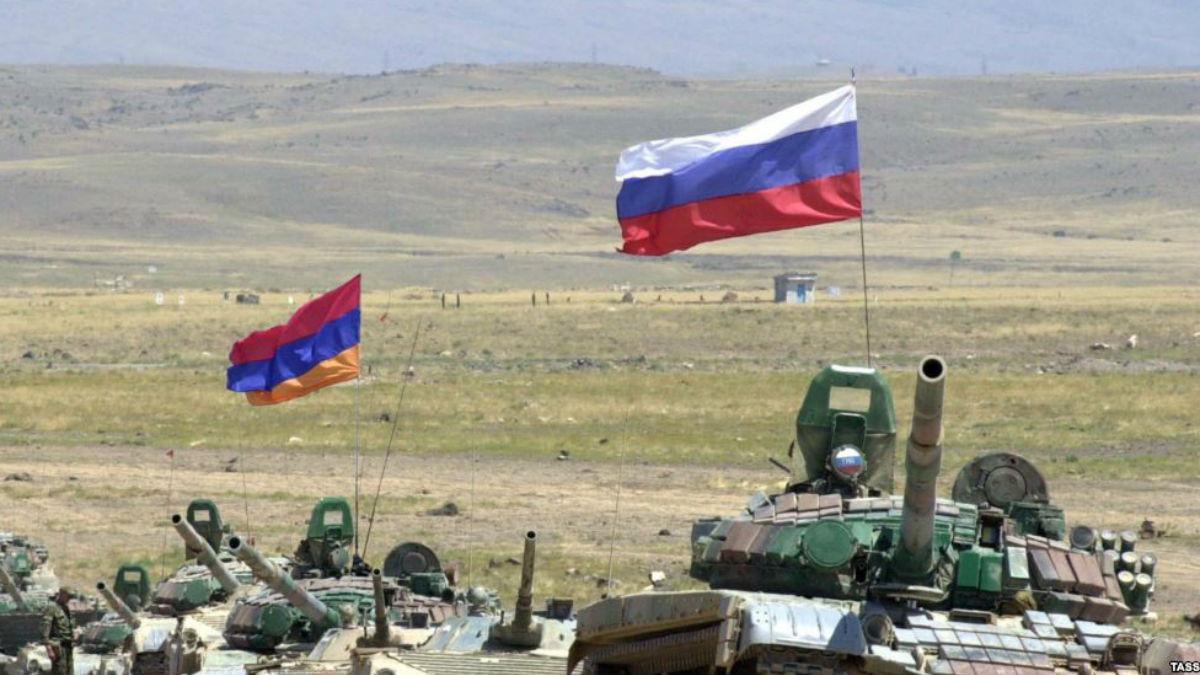"The Russian security model exhausted itself long ago." Opinion from Yerevan
Political assessment of the CSTO
“The post-Soviet military model cannot justify itself. Armenia has drawn its conclusions and is taking active steps in this direction,” Armenian Parliament Speaker Alen Simonyan said the day after the CSTO summit held in Yerevan.
He did not specify what steps the country is taking to ensure its security, and the Armenian government, who criticize CSTO inaction, have not announced whether they are going to leave the organization. On the other hand, Moscow has commented on this issue, with Dmitry Peskov speaking for the Armenian authorities — “Armenia, of course, will remain in the CSTO.”
According to political scientist Surenyants, Russia and the CSTO are unscrupulous partners, but failing a major upset, Armenia will not leave the Russian military bloc.
Statements by the Speaker of the Armenian Parliament and analysis of the situation with CSTO from an expert.
“From whom did we join the CSTO to protect ourselves?”
The speaker of the Armenian parliament asked this question of journalists and then answered it himself: from Turkey and Azerbaijan.
“But when the time came for at least a political assessment, this political assessment did not satisfy Armenia. The answer was that Armenia simply refused to sign the document, hoping that a political assessment would still be made,” Alen Simonyan said, calling the situation in the CSTO “curious”.
On November 23, Yerevan hosted a summit of the Russian-led CSTO military bloc. The leaders of all member countries participated: Armenia, Russia, Belarus, Tajikistan, Kyrgyzstan and Kazakhstan. Nikol Pashinyan refused to sign a draft on joint measures to provide assistance to Armenia in order to protect its borders from Azerbaijan’s incursions. Armenia once again turned to Russia and the CSTO for military assistance after the hostilities on the Armenian-Azerbaijani border in September this year, but instead of an urgent response, the CSTO sent a monitoring mission to Armenia only after some time. In Yerevan they expected from the organization at least a political assessment of the situation, which was also not forthcoming.
Pashinyan refused to sign the document on rendering assistance to Armenia, since Armenian proposals were not included therein. Nevertheless, the prime minister assessed the discussions with colleagues as “open, sincere and positive.” On the morning after the summit, he expressed hope that after finalizing the draft, it would become a common and binding agreement.
Meanwhile, the speaker of the Armenian parliament believes that “the document needs to be reviewed.”
Alen Simonyan says there are “troops of a third country” on the territory of the CSTO, and wants to know how the organization explains this. He believes that it is necessary to ask the partners if they themselves have decided to abandon “this Transcaucasian territory.”
“We are not only waiting for organization to act, but we are also taking independent action to ensure the security of our borders,” he stated.
Speaking of Russian military presence in Armenia, Simonyan said that Armenia does not receive sufficient military and political support. Otherwise “Armenia would still not have prisoners of war remaining in Baku after the end of the war in Karabakh”, “there would be no Khtsaberd events in the area of responsibility of Russian peacekeepers and Lake Sev Lich, nor an invasion near Jermuk [on the southern border of Armenia ].”
The speaker stated that the post-Soviet model of the Armenian armed forces isn’t working out:
“There is a lot of evidence for that. This was evident not only during the hostilities that took place on the Armenian-Azerbaijani border. Armenia has drawn its conclusions regarding all this and is taking active steps in this direction.”
Simonyan hopes that the CSTO member states “will come to their senses and come up with at least a political assessment of the aggression carried out by Azerbaijan in September of this year.” Only thus will the CSTO prove that “it exists and is efficient.”
Comment
According to political scientist Suren Surenyants, the leaders of the CSTO member states have chosen tactics that “save them face.”
“On one hand, Armenia can say that the CSTO decision has not been rejected, but is under discussion, they are working on it. On the other hand, the leaders of the CSTO member states that have warm relations with Azerbaijan will be satisfied that they have refrained from taking a step that will irritate Baku,” Surenyants told JAMnews.
He assumes that the CSTO will periodically return to this issue, but this will not lead to a decision and the organization will not take active steps in support of Armenia.
According to Surenyants, the leaders of the countries belonging to the bloc have clearly shown that their priority is the resolution of Armenian-Azerbaijani relations through the mediation of Putin, and not containment of Azerbaijan as such:
“They will try to focus their efforts in this direction, showing that their vision is to strengthen stability, and not to punish or support someone.”
According to Surenyants, if there is no major upset politically Armenia will not leave the CSTO. He considers Russia and the CSTO unscrupulous partners, and maintains that the solution to Armenia’s problems lies in the Eurasian region, and the CSTO is one of the components of its security system:
“Is it wise to slam the door and leave the room where your problems remain? You are not in the room, and you do not have the minimum opportunity to influence these problems.
This issue, Surenyants believes, can be considered if Armenia receives an alternative proposal to ensure its security from another geopolitical power. But even in this case, he advises taking into account the risks and weighing whether the guarantor can protect the country from possible opposition from Russia.
“We cannot afford the prospect of becoming Ukraine II,” Surenyants said.
Commenting on the statement of the speaker of the parliament that “the post-Soviet military model does not justify itself, the country is taking active steps,” Surenyants suggests that he was talking, perhaps, about diversifying military-technical cooperation and acquiring weapons, for example from India.
“The Russian model exhausted itself long ago, but before making loud statements, you need to have a concept for the development of the armed forces,” Surenyants concluded.
Political assessment of the CSTO




















